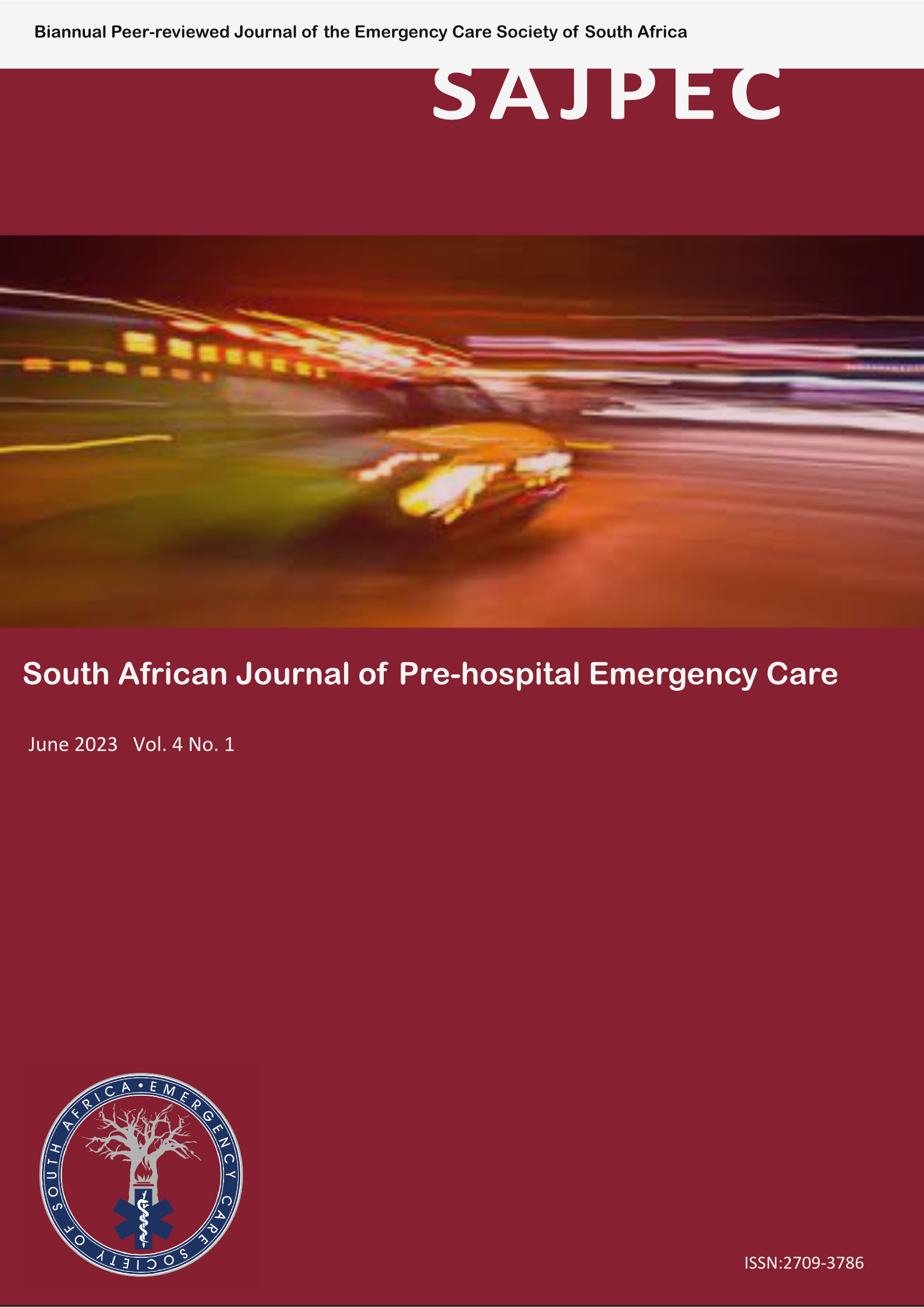Telephonic descriptions of out-of-hospital cardiac arrest by laypersons calling the dispatch centre of a private emergency medical service in South Africa
DOI:
https://doi.org/10.24213/4-1-5881Abstract
Background: The incidence of out-of-hospital cardiac arrest (OHCA) is expected to increase in South Africa. In order to encourage bystander cardiopulmonary resuscitation (CPR), international guidelines recommend call-taker recognition of the arrest and the initiation of telephone-guided CPR. One of the only ways that a call-taker can identify OHCA is through the description of the incident offered by the caller. The aim of this study was to identify the keywords and phrases that are used by callers to describe patients who are experiencing OHCA during calls made to a South African private Emergency Medical Service (EMS).
Methods: A qualitative exploratory design was used and employed inductive dominant content analysis to identify the keywords and phrases that are used by callers to describe patients who are experiencing OHCA during calls made to a South African private EMS. The initial sampling frame was all cases of the “Cardiac Arrest” incident type recorded between 1 January 2019 and 31 December 2019.
Results: A total of 28 call recordings were analysed. Keywords and phrases were organised into five categories: 1) Cardiac activity; 2) Level of consciousness; 3) Breathing descriptors; 4) Ill health; and 5) Clinical features.
Conclusion: Callers into a private emergency dispatch centre used consistent descriptors of OHCA, which were similar to those found in previous South African studies. Future research should focus on determining the accuracy of these descriptors to differentiate between OHCA and other conditions, and integrate them into OHCA recognition algorithms, call-taker training and telephone-guided CPR protocols.
Downloads
Additional Files
Published
Issue
Section
License
Authors grant the Emergency Care Society of South Africa the exclusive right to publish, display, reproduce and/or distribute the work in print and electronic format and in any medium known or hereafter developed, including for commercial use. Authors also agree that the Emergency Care Society of South Africa may retain in print or electronic format more than one copy of the work for the purpose of preservation, security and back-up.


